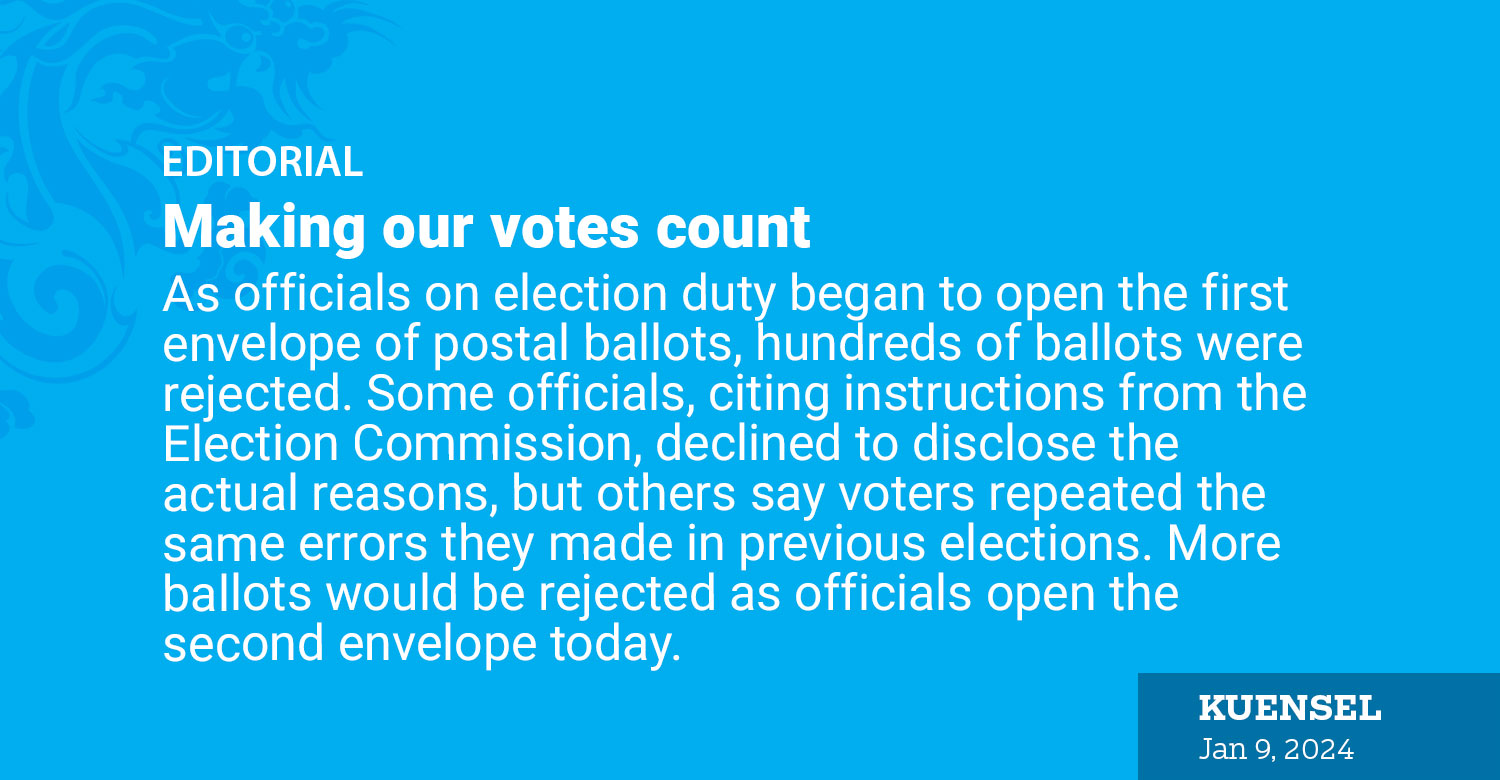As officials on election duty began to open the first envelope of postal ballots, hundreds of ballots were rejected. Some officials, citing instructions from the Election Commission, declined to disclose the actual reasons, but others say voters repeated the same errors they made in previous elections. More ballots would be rejected as officials open the second envelope today.
Errors cannot be ruled out entirely in postal ballots. Even in a developed country like Singapore, rejections run into thousands. But that is no excuse for us to explore ways to improve because, in the end, even one ballot rejected is an opportunity lost for that individual to make a change.
Many democratic regimes believe that voting is a right on which all other rights depend. Therefore, the electoral process is a critical element of democratic governance, responding to the changing political, economic, and social environment.
Although voting technology has been broadly standardized, our main issue remains making voting easily accessible to everyone, especially those in the private sector. For those who have to travel long distances home to exercise their right and perform their duty, it has turned out to be a heavy burden.
Our fledgling democracy is discussing concepts rather than specialized aspects of elections. While people worldwide focus on different election facets, we are dealing with general issues. However, there is an opportunity to learn from known trends. The concept of “election day” is changing globally, introducing ideas like early voting, absentee voting, voting by mail, and now internet voting.
Some countries set up more voting posts to make the facility closer to the people. They also allow voting from the workplace, eliminating the need for voters to return to their hometowns and villages.
Bhutan also has the chance to ensure that the voter turnout is high. At this stage, we could even aim for the highest voter turnout ever witnessed in democratic elections.
The responsibility we have been given is that, as a society, we must all make a serious attempt to be involved in the political process and be able to influence change by voting. Our responsibility is to elect the right leaders and to keep questioning their decisions after the elections. Politics will have its own impact on change, as we have witnessed in the 15 years. As we go to the polls today, it is important that we see potential leaders for their real worth and not as former lyonpos, dashos, farmers, or shopkeepers. We have to vote for an individual going by his or her capability.


